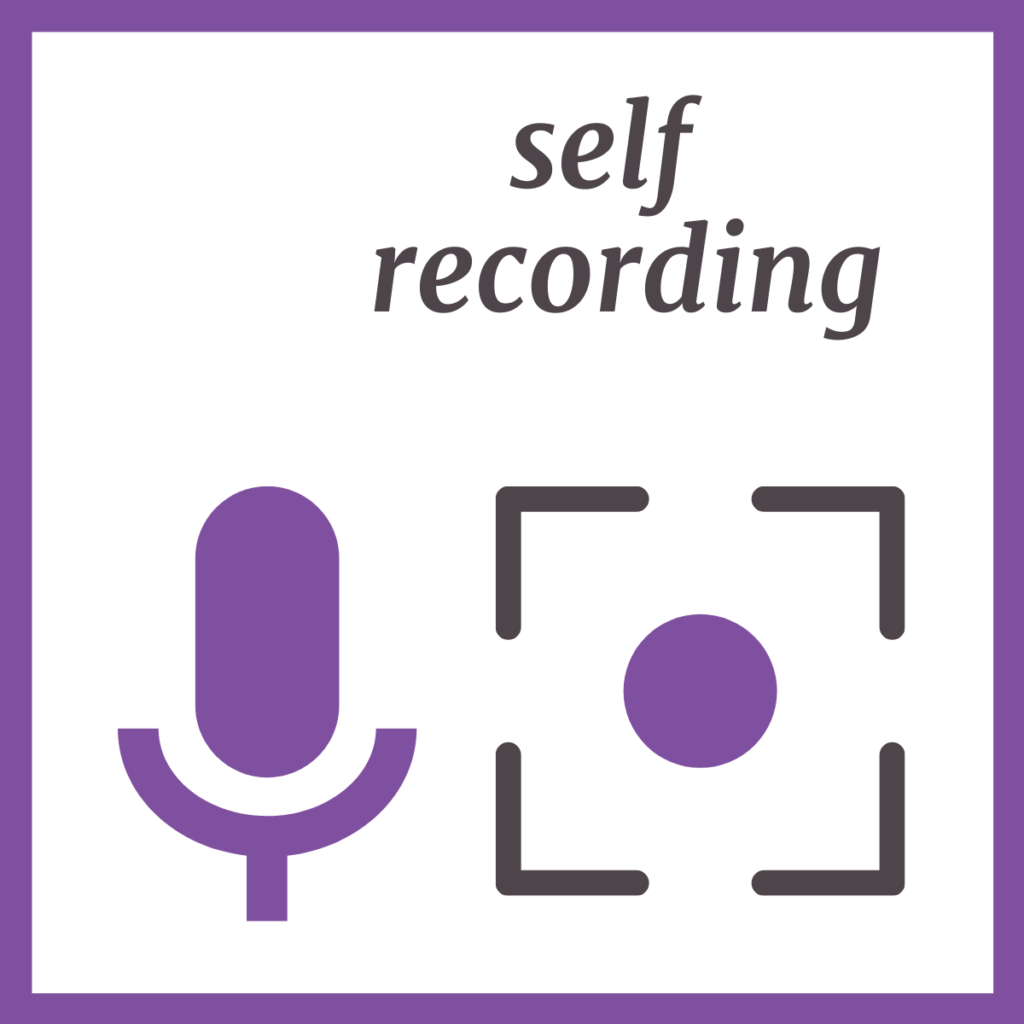Self Recording in Practice
Everything you need to strengthen your musicianship skills

As a “performer” – even if you are only singing scales in the shower – you do not hear yourself the way others do.
You may be too busy thinking about the Solfa names of the notes you are singing or the rhythm Deb asked you to clap as you sing that melody.
Consequently, to really KNOW what you sound like, you NEED to record yourself, then listen back with your “musicianship teacher” hat on – recordings don’t lie!
As you listen back, choose something to focus on e.g. tuning, beat consistency, rhythmic accuracy etc and listen as many times as necessary until you know what to correct. Practice, then record it again and listen to it again. Repeat until you have successfully completed the task correctly.
Benefits
- you may not always have someone else to give you the immediate feedback you need – self-recording means you’re able to do that for yourself
- self recording allows you to track your progress – especially if you go back and listen to various takes of a certain activity or concept over a period of time
- self recording means you can hear what needs more attention
- self recording gives you a frame of reference – if you can hear your beats aren’t consistent in take one for instance, then you can use that recording to check whether take two is an improvement or not
- self recording means you get to refine elements of your musicianship that need attention in your own time, space and way
- self recording is a way to get feedback without feeling like you need to perform, or feeling nervous about others hearing you
- even though it’s less pressure than when others can hear you, self recording is also, in it’s own way, a great chance to practice “performance”
Important note:
Self recording can be applied to many areas of your life. Another obvious area is your performance instrument/voice. Do you record your rehearsals and performances then listen back to hear how you could improve for next time? If not, you really should!
Read on for more….
Don’t have high-quality microphones and a state-of-the-art recording booth in your home? No worries! You’ve got all you need to create useful self recordings on your devices.
Generally, the default voice/memo recording app on your mobile phone will be fine for this sort of thing, but here are some other options:
10 Best Voice Recording Apps for Android
10 Best Voice Recording Apps for iPhone
It’s always a good idea to make sure you’ve got a nice quiet space to record in, away from other members of the household or loud traffic – just so you know that when it’s played back, you’ll be able to hear yourself clearly. Make sure to title the tracks accordingly, especially if you plan to come back later and see how far you’ve come!

